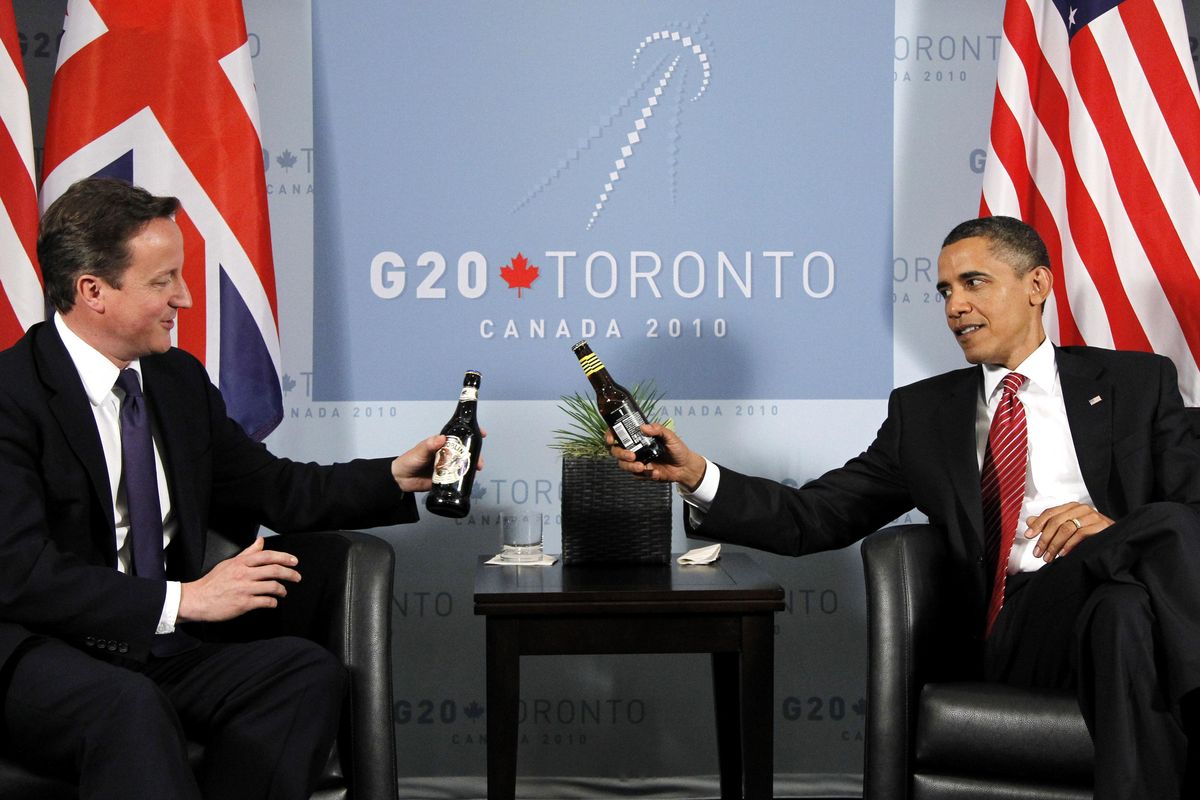G-8 summit wraps up
Little consensus reached on recovery

TORONTO – At odds over how to strengthen the global recovery, top world leaders found common ground on foreign policy Saturday, condemning North Korea for the alleged sinking of a South Korean warship and endorsing a five-year exit timetable for Afghanistan
In a joint statement, the leading eight industrial democracies also criticized both Iran and North Korea for continuing their nuclear march and called on both to heed existing United Nations resolutions.
The statement on the March sinking of the South Korean ship was not as strongly worded as the United States and some other countries had hoped. Russia was cited as a holdout against tougher language.
After spending Friday debating the best response to the lingering global financial crisis, the G-8 leaders – representing the United States, Canada, Britain, France, Germany, Italy, Japan and Russia – focused Saturday on foreign policy, where it appeared easier to reach consensus.
The Group of Eight nations concluded the group’s two-day meeting at a lakeside resort about 140 miles north of Toronto with a joint statement. Leaders then immediately returned to Toronto to continue their talks as part of the Group of 20, a broader meeting which includes countries with fast-growing economies such as China, India and Brazil.
World leaders found themselves divided on how best to keep the world economy growing after the worst recession since the 1930s. They split between calls, mainly from the U.S., for more government stimulus to keep the world from slipping back into recession, and appeals from European countries and Japan for spending cuts and even tax hikes to avoid Greece-like near defaults.
The back-to-back summits came amid what Canadian Prime Minister Stephen Harper, the host, called an “enormous crisis facing us all, serious threats to the stability, economic prosperity of every country.”
Leaders were also holding one-on-one sessions on the sidelines of the two summits. Obama met separately on Saturday with Chinese President Hu Jintao, South Korean President Lee Myung-bak and British Prime Minister David Cameron.
Underscoring China’s importance on the world stage, Obama invited Hu to Washington for a formal state visit – one of the most-coveted diplomatic invitations. Hu accepted, and White House officials said the two nations will work out a date. It would be the third state dinner of Obama’s presidency, following ones for India and Mexico.
During his meeting with Korea’s Lee, Obama said North Korea must be “held to account” for its alleged role in sinking the South Korean warship, and “we stand foursquare behind” Lee.
The South Korean appealed for a “strongly worded” resolution out of the U.N. Security Council. In their closing statement, the G-8 leaders cited an independent report that found that the ship had been sunk by a North Korean torpedo.
“We condemn in this context the attack which led to the sinking of the Cheonan,” the statement said, though it did not explicitly blame North Korea for the attack. North Korea has denied involvement in the attack.
And the leaders endorsed a five-year exit strategy for foreign troops from Afghanistan, a timetable first proposed by Afghan President Hamid Karzai last year. In addition, both Obama and Cameron said the war must show progress this year.
“This period that we are in is going to be critical,” Obama said after he met with the British leader separately. Added Cameron: “Making progress this year, putting everything we have into getting it right this year, is vitally important.”
It was Obama’s first private meeting with Cameron since the conservative took power last month with a coalition government, and the first since an undersea well sunk by the British oil company BP PLC began gushing oil into the Gulf of Mexico. The environmental catastrophe has strained relations between the two historic allies.